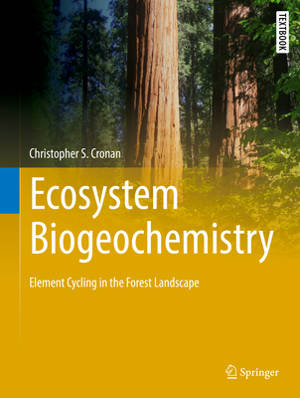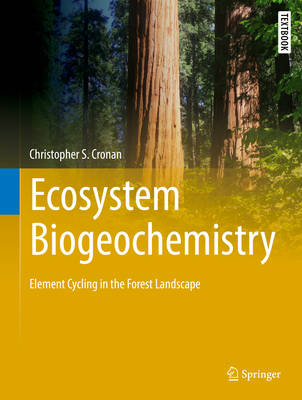
- Afhalen na 1 uur in een winkel met voorraad
- Gratis thuislevering in België vanaf € 30
- Ruim aanbod met 7 miljoen producten
- Afhalen na 1 uur in een winkel met voorraad
- Gratis thuislevering in België vanaf € 30
- Ruim aanbod met 7 miljoen producten
Omschrijving
This textbook presents a comprehensive process-oriented approach to biogeochemistry that is intended to appeal to readers who want to go beyond a general exposure to topics in biogeochemistry, and instead are seeking a holistic understanding of the interplay of biotic and environmental drivers in the cycling of elements in forested watersheds. The book is organized around a core set of ecosystem processes and attributes that collectively help to generate the whole-system structure and function of a terrestrial ecosystem. In the first nine chapters, a conceptual framework is developed based on distinct soil, microbial, plant, atmospheric, hydrologic, and geochemical processes that are integrated in the element cycling behavior of watershed ecosystems. With that conceptual foundation in place, students then proceed to the final three chapters where they are challenged to think critically about integrated element cycling patterns; roles for biogeochemical models; the likely impacts ofdisturbance, stress, and management on watershed biogeochemistry; and linkages among patterns and processes in watersheds experiencing novel environmental changes.
Included with the text are figures, tables of comparative data, extensive literature citations, a glossary of terms, an index, and a set of 24 biogeochemical problems with answers. The problems are intended to support chapter concepts and to demonstrate how critical thinking skills, simple algebra, and thoughtful human logic can be used to solve applied problems in biogeochemistry that might be encountered by a research scientist or a resource manager.
Using this book as an introduction to biogeochemistry, students will achieve a level of subject mastery and disciplinary perspective that will permit them to see and to interpret the individual components, interactions, and synergies that are represented in the dynamic element cycling patterns of watershed ecosystems.
Specificaties
Betrokkenen
- Auteur(s):
- Uitgeverij:
Inhoud
- Aantal bladzijden:
- 203
- Taal:
- Engels
- Reeks:
Eigenschappen
- Productcode (EAN):
- 9783319664439
- Verschijningsdatum:
- 17/10/2017
- Uitvoering:
- Hardcover
- Formaat:
- Genaaid
- Afmetingen:
- 219 mm x 293 mm
- Gewicht:
- 820 g

Alleen bij Standaard Boekhandel
Beoordelingen
We publiceren alleen reviews die voldoen aan de voorwaarden voor reviews. Bekijk onze voorwaarden voor reviews.











